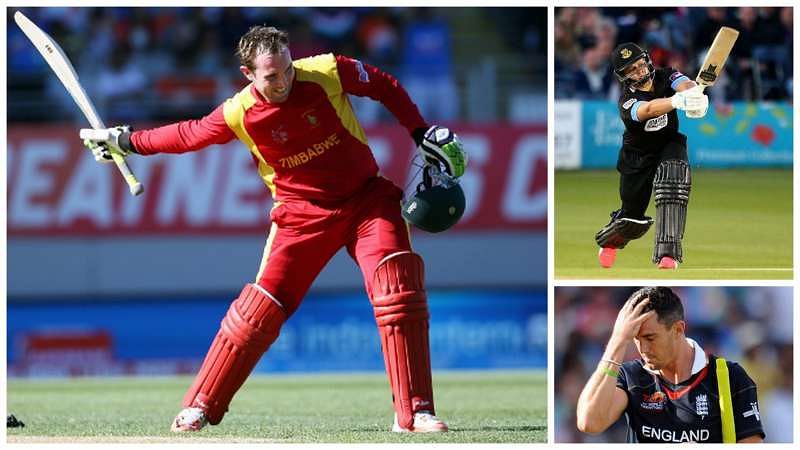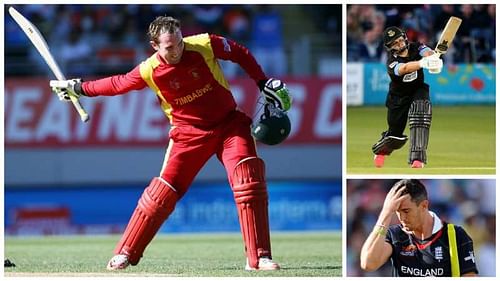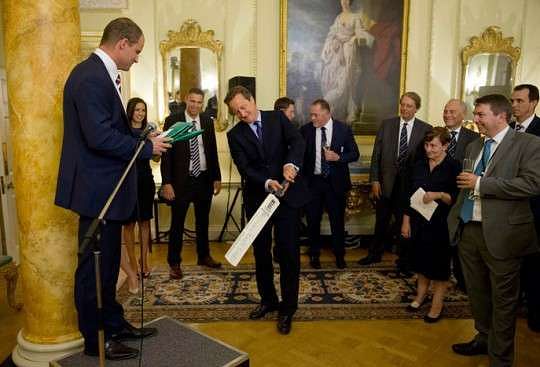
Impending threats for cricketers and lost possibilities for the sport in the wake of Brexit
When 51.9% of Britain walked out of the voting booth on Thursday having successfully decided that their country would no more be a part of the European Union, they were colluding in a historic crime, the blood stains of which will continue to show up for years to come and in fields still unknown. Rarely has a country walled itself off from the rest of the world with so much impunity.
Expectedly, post-Brexit emotions are running high and the knives and forks have been out on the social media; even cricketer Alan Mullally was seen involved in an objectionable interaction with an Indian, claiming how India’s claim to greatness is somehow related to the Empire’s introduction of cricket to the country. Cricket is one of the least important concerns in the uncertain political air hanging over Europe now, but the sport shall feel the implications of the Brexit blunder as well.
The big question hanging around English county dressing rooms as their country crosses over from a ‘breaking point’ to a crisis is about how the Kolpak ruling will be affected through this. In other words, will a Faf du Plessis or a Dwayne Smith rising through the ranks be made an impossibility?
The Kolpak crisis
The Kolpak ruling and Cotonou Treaty, instituted in 2003, allows players from countries in the EU or countries that have a trade agreement with the EU to play in county cricket as non-overseas players. Sportsmen from Africa, Caribbean and Pacific Group of States (ACP) enjoy the same rights as EU players because of international trade treaties. It was this avenue that Du Plessis and Smith were two of the big names in world cricket to choose, and it is this avenue being shut down.
Roelof van der Merwe at Somerset is on a Dutch passport. Ravi Rampaul at Surrey is on a Trinidadian passport. Brendan Taylor at Nottinghamshire is on a Zimbabwean passport. Colin Ingram at Glamorgan is on a South African passport. Fidel Edwards at Hampshire is on a Barbados passport. There are currently 30-40 Kolpak cricketers playing for English county sides across all divisions this season, and the spotlight is suddenly on them.
It has been announced on the occasion of the Brexit that all EU passports holders on valid contracts with British employers will not be affected and will be permitted to work out their contracts. Thankfully, the 30-40 cricketers will not be suddenly left without a job and have to leave the country, but the whole affair still does stink of more military times.
Unless Britain announces otherwise, leaving the EU will render the Kolpak agreement void, meaning future imports from such countries will count as ‘foreign' players. The ruling has not been addressed actively yet, but if the ECB chooses to disqualify kolpaks, they could proceed with audacity, because a challenge to such a decision is not going to count for much in the European Court of Justice since Britain has voted to exit.
The venerated Ian Botham and David Gower were two among the advocates of ‘Leave’, and there is an argument, however myopic, to show how dissolving the Kolpak ruling will help English cricket. There is a distinct thought that the Kolpak cricketers, despite what they bring to the table, are taking up space that could have been otherwise occupied by England-born cricketers.
There has been a conscious effort on ECB’s part in recent years to clamp down on the number of Kolpak players in the country, after the matter started ‘going out of hand’, with both cricketers from other countries and county teams realising the usefulness of such an arrangement. By 2008, there were 60 Kolpak players registered to play county cricket.
A few famous names to have walked down the Kolpak path are Faf du Plessis, Neil McKenzie, Alviro Petersen, Ryan McLaren, Andre Nel, Colin Ingram, Jacques Rudolph, Justin Kemp, Paul Harris, Ashwell Prince, Alfonso Thomas (all from South Africa), Murray Goodwin, Andy Flower, Grant Flower, Kyle Jarvis (all from Zimbabwe), Dwayne Smith, Pedro Collins, Corey Collymore(all from West Indies), Andre Adams (New Zealand) and Ryan ten Doeschate (Netherlands).
The final cut is bound to be harsh, but there has been such a hard line already taken by the ECB that the county teams had already begun to toe the line. The only Kolpak signing in the winter of 2015 was Ravi Rampaul, for Surrey.
In 2008, the ECB brought in measures to effectively fine the counties by charging them for fielding non-England-qualified players. Home Office brought in a ruling stating that any Kolpak player had to have a valid work visa for a four year period to qualify as an EU citizen.
The exit door was already being shown to the Kolpak players, but who would have known they would be pushed out with force only eight years later!
Lost possibilities
The 24-year-old Craig Cachopa, born in South Africa and former captain of New Zealand’s U-19 side, is a special case. He has been signed for two seasons by Sussex, and according to the rule that pre-Brexit contracts will be honoured, his lifeline is not to be cut off, for at least another year. Luckier than older cricketers like Van der Merwe and Rampaul, Cachopa does not have to think about his future for at least another year.
Contrary to the fear that Kolpak is only an avenue of lucrative income for overage cricketers, most Kolpak players play in England as well as in their native countries, facilitating an international transfer of skills. Brexit will cut off this lifeline. South Africans, who have chosen the Kolpak route because of a quota system in their country that gives priority to coloured players, will be walled off.
For 11 years between 2004 and 2015, in 139 Tests, England started a match with a South African-born player in their team, such as Andrew Strauss and Kevin Pietersen. All eyes are on how the consequences of Brexit will play out in coming generations, but it is certain that someone like Kevin Pietersen turning out for England is one of the things that will not happen in the post-Brexit world.
However, as is often seen, sports is an exception from life, and the Kolpak and Cotonou Treaty may continue to be honoured despite the political blunder committed. On the other hand though, as is often seen when it comes to analysing British sports teams on major occasions, this can be a lot of wishful thinking.

